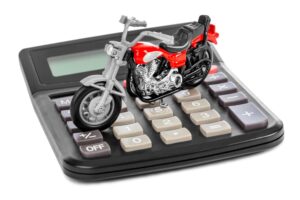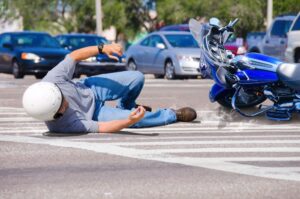How to Prove Liability in a Motorcycle Accident Caused by a Distracted Driver
Motorcyclists face unique risks on the road, and the rising prevalence of distracted drivers only exacerbates these dangers. Inattentive drivers pose a significant threat to motorcyclists, leading to an alarming number of accidents and injuries.
Being involved in a motorcycle accident caused by a distracted driver can be a devastating experience. Not only are you dealing with the physical and emotional aftermath of the accident, but you may also be faced with mounting medical bills and lost earnings. To receive the compensation you deserve, you must prove liability on the part of the distracted driver. Unfortunately, this can be a complex task, as you will need to gather evidence such as eyewitness statements, phone records, and any available surveillance footage.
As such, it’s in your best interest to seek the assistance of a Seattle motorcycle accident attorney who can guide you through the legal process and help establish the distracted driver’s negligence. Contact an attorney near you as soon as possible to discuss your case and explore your options for seeking justice and rightful compensation.
What Is Distracted Driving?
Distracted driving includes any activity that diverts a driver’s attention away from the task of driving. It includes not only visual distractions but also manual and cognitive distractions. While any type of distraction is hazardous, certain behaviors are particularly dangerous when it comes to driving, especially for motorcyclists.
Common Forms of Driver Distraction That Endanger Motorcyclists

- Texting or using a phone while driving: Cell phone use has become one of the leading causes of distracted driving accidents. Texting or even talking on the phone takes a driver’s eyes, hands, and focus away from the road, significantly increasing the risk of an accident.
- Adjusting GPS, radio, or in-car entertainment systems: When drivers take their eyes off the road to adjust these devices, they become distracted. Even a brief moment of distraction can lead to a serious accident, especially if a motorcyclist is in the vicinity.
- Eating, drinking, or reaching for objects inside the vehicle: These seemingly minor actions can have significant consequences while driving. Drivers who engage in these activities may not have complete control of their vehicles, making them more prone to causing accidents involving motorcyclists.
- Talking to passengers or being mentally distracted: Engaging in conversations with passengers or daydreaming can divert a driver’s attention from the road. Inattentiveness caused by talking or being lost in thought can lead to critical errors and collisions with motorcyclists.
How Distracted Driving Causes Motorcycle Accidents
Distracted driving can have devastating effects on motorcyclists due to their increased vulnerability on the road. The following scenarios illustrate how distracted driving can directly lead to motorcycle accidents:
- Failure to check blind spots before changing lanes: When drivers are distracted, they may fail to check their blind spots or utilize their mirrors effectively. As a result, they may not see an approaching motorcyclist and inadvertently collide with them while changing lanes.
- Running red lights or stop signs, hitting a motorcyclist in an intersection: Distracted drivers can be oblivious to traffic signals, leading them to run red lights or stop signs. It can result in them colliding with motorcyclists who have the right of way, causing severe injuries or fatalities.
- Rear-ending a motorcyclist due to delayed reaction time: When drivers are distracted, their reaction time slows down. In situations where a motorcyclist suddenly stops or maneuvers to avoid an obstacle, a distracted driver may fail to react in time, resulting in a rear-end collision.
How to Prove Liability in a Motorcycle Accident Caused by a Distracted Driver
Proving liability is essential for motorcycle accident victims seeking proper compensation for their injuries and damages. By establishing that the driver was distracted and their negligence directly caused the accident, injured victims can strengthen their case and improve their chances of securing a favorable outcome. Here are several critical steps to take to prove liability:
Obtain the Police Report
The first step is to obtain the official police report documenting the details of the accident. This report may include valuable information, such as whether the driver was noted as distracted, texting, or using their phone at the time of the collision. If the police report explicitly mentions distracted behavior, it can significantly strengthen the case.
Gather Eyewitness Testimonies
Eyewitnesses play a vital role in substantiating claims of distracted driving. Bystanders or other drivers who witnessed the accident may have observed the at-fault driver engaging in distracting activities, such as texting or looking away from the road. Witness statements can provide valuable evidence to support the claim of negligence. Your attorney can collect their contact information from the police report to obtain their statements.
Use Traffic Camera or Dash Cam Footage
Whenever available, video evidence can be invaluable in establishing liability. Intersection cameras, surveillance footage, or dash cam recordings from other vehicles may capture the distracted driver’s actions leading up to the crash. This footage provides undeniable proof of their negligence and can significantly strengthen the case.
Secure Phone Records of the Distracted Driver
Phone records can confirm whether the driver was using their phone, texting, or making calls at the time of the accident. If the at-fault driver denies their involvement in distracting behavior, an experienced motorcycle accident lawyer can subpoena their phone records to provide undeniable evidence of their negligence.
Look for Skid Marks and Physical Evidence
Physical evidence at the accident scene can help reconstruct the sequence of events and prove liability. Skid marks, vehicle damage, and accident debris can provide critical information on how the collision occurred. For instance, the absence of skid marks may indicate that the distracted driver never saw the motorcyclist and failed to brake in time.
Work with Accident Reconstruction Experts
Accident reconstruction experts can analyze the crash scene, vehicle damage, and driver behavior to provide expert testimony. They use their experience to recreate the accident and determine the role of distracted driving in causing the collision. Their analysis and professional assessment can help solidify the claim of distracted driving. Most motorcycle accident attorneys have accident reconstructionists working on these types of cases.
Common Challenges in Proving Distracted Driving in a Motorcycle Accident Case
Proving distracted driving in a motorcycle accident case often comes with several challenges. It is essential to be aware of these challenges and how a motorcycle accident lawyer can overcome them:
The At-Fault Driver Denies Distraction
In many cases, the distracted driver may deny engaging in any distracting activities at the time of the accident. They may claim that they were paying full attention to the road and that the motorcyclist was at fault. Overcoming this challenge requires diligent gathering of evidence to prove the driver’s distractions beyond doubt.
Lack of Direct Evidence
Some forms of distraction, such as daydreaming or engaging in conversations, are challenging to prove without direct evidence. Unlike texting or phone use, these activities may leave no physical record. Overcoming this challenge often requires relying on witness testimonies, expert analysis, and any available circumstantial evidence.
Insurance Companies Blaming the Motorcyclist
Insurance companies may try to shift the blame onto the motorcyclist, accusing them of speeding, lane-splitting, or other reckless behavior. This tactic aims to reduce the compensation they may have to pay. To overcome this challenge, you need to have strong evidence proving the distracted driver’s liability and work with a skilled attorney who can negotiate on your behalf.
Common Motorcycle Accident Injuries Caused by Distracted Drivers
Distracted drivers pose a danger to motorcyclists, who are already vulnerable on the road due to their smaller size and lack of protection. When a driver is texting, using GPS, eating, or adjusting the radio, they may fail to see a motorcycle in their blind spot or misjudge distances, leading to severe and often life-threatening accidents.
One of the most serious injuries motorcyclists suffer in crashes caused by distracted drivers is a traumatic brain injury (TBI). Even with a helmet, a rider’s head can experience severe impact, leading to concussions, cognitive impairments, memory loss, or permanent brain damage. Spinal cord injuries are also common and can result in paralysis, nerve damage, or chronic pain.
Fractures and broken bones frequently occur when a motorcyclist is thrown from the bike or pinned under a vehicle. Leg, arm, and rib fractures are particularly common, sometimes requiring surgery and long-term rehabilitation. Additionally, road rash and deep lacerations can cause serious infections, permanent scarring, or even amputations in extreme cases.
If you’ve suffered an injury in a motorcycle accident caused by a distracted driver, it’s essential to consult a motorcycle accident lawyer to protect your rights and seek the compensation you deserve for your injuries.
What Compensation Can You Seek After a Motorcycle Accident Caused by a Distracted Driver?
If you have been involved in a motorcycle accident caused by a distracted driver, you may be eligible to seek compensation for various damages. These can include:
Medical Expenses

Compensation for all medical costs associated with the accident, including hospital visits, surgeries, rehabilitation, and any ongoing or future medical care. This coverage extends to physical therapy, prescription medications, and assistive devices necessary for recovery.
Lost Earnings and Reduced Earning Capacity
Reimbursement for lost earnings during the recovery period. Additionally, if the injuries sustained in the accident impede the ability to return to work or result in reduced earning capacity, compensation for future lost earnings may be pursued.
Pain and Suffering
Compensation for physical pain, emotional distress, PTSD, and trauma experienced as a result of the accident. This also considers the impact of any permanent injuries on the injured victim’s quality of life and overall well-being.
Property Damage
Coverage for the repair or replacement costs of the damaged motorcycle and riding gear. This includes any necessary repairs to restore the motorcycle to its pre-accident condition and compensation for damaged protective riding gear.
Punitive Damages
In cases where the distracted driver’s actions were particularly egregious, such as texting, using social media, or otherwise engaging in grossly negligent behavior, punitive damages may be awarded. This additional compensation serves as a deterrence and punishment for such behavior.
Why You Should Contact a Motorcycle Accident Lawyer
When facing the aftermath of a motorcycle accident caused by a distracted driver, you will want to seek the assistance of a qualified motorcycle accident lawyer. Here are several reasons why you should contact a seasoned motorcycle accident attorney:
Experience in Proving Distracted Driving Cases
Motorcycle accident lawyers are well-versed in personal injury cases and understand how to gather evidence and establish negligence in distracted driving cases. They have the experience and knowledge to navigate the legal process successfully and hold the responsible party accountable.
Maximizing Compensation for Injured Motorcyclists
Motorcycle accident lawyers are dedicated to ensuring injured motorcyclists receive the full compensation they deserve. They understand the nuances of personal injury law and will fight for your rights to cover medical costs, lost income, pain and suffering, and other damages resulting from the accident.
Handling Tough Insurance Negotiations
Insurance companies often employ tactics to minimize settlements or deny valid claims altogether. A reputable motorcycle accident lawyer can level the playing field by negotiating aggressively with insurance companies on your behalf. They will fight for fair compensation and protect your interests throughout the negotiation process.
Contingency Fees
Most motorcycle accident lawyers work on a contingency fee basis, meaning you only pay legal fees if they can obtain compensation on your behalf. This arrangement eliminates the financial risk for victims and allows them to focus on their recovery without worrying about upfront costs.
Contact a Motorcycle Accident Lawyer Today
If you suffered an injury from a distracted driver while riding your motorcycle, you may be entitled to significant compensation. It is essential to act quickly and contact a motorcycle accident lawyer near you to discuss your case. A professional attorney can help build a strong case, protect your rights, and fight for the compensation you deserve. Don’t delay – take the first step toward justice by scheduling a free consultation with a Seattle personal injury lawyer today.



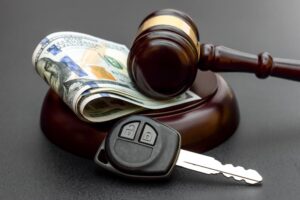








 There are cases where a
There are cases where a 
 Motorcyclists can be difficult to see even when a motorist is alert and sober.
Motorcyclists can be difficult to see even when a motorist is alert and sober. 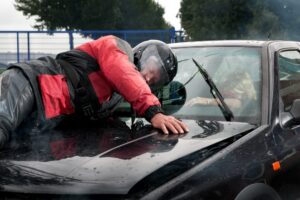 The often serious nature of motorcycle accidents means that you can face life-changing losses. These losses may be economic (meaning they have a clear financial cost) or non-economic in nature, and may include:
The often serious nature of motorcycle accidents means that you can face life-changing losses. These losses may be economic (meaning they have a clear financial cost) or non-economic in nature, and may include:
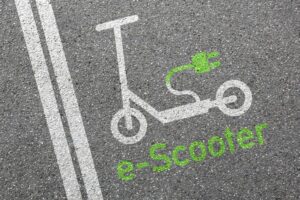
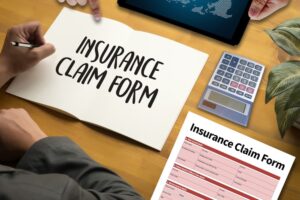

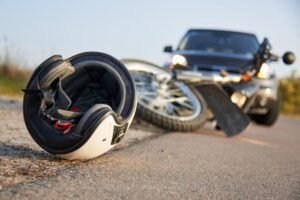




 Motorcycle accidents that result from another driver’s failure to yield can bring about serious injuries. Among the most common are:
Motorcycle accidents that result from another driver’s failure to yield can bring about serious injuries. Among the most common are: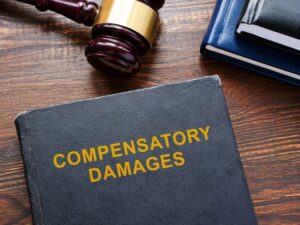 When a motorcycle rider gets injured in a failure-to-yield accident, they can seek monetary damages to cover their losses and expenses through a personal injury claim or lawsuit. These damages help the injured rider recover financially from the accident’s aftermath. Here are the main types of monetary damages they can pursue:
When a motorcycle rider gets injured in a failure-to-yield accident, they can seek monetary damages to cover their losses and expenses through a personal injury claim or lawsuit. These damages help the injured rider recover financially from the accident’s aftermath. Here are the main types of monetary damages they can pursue:


